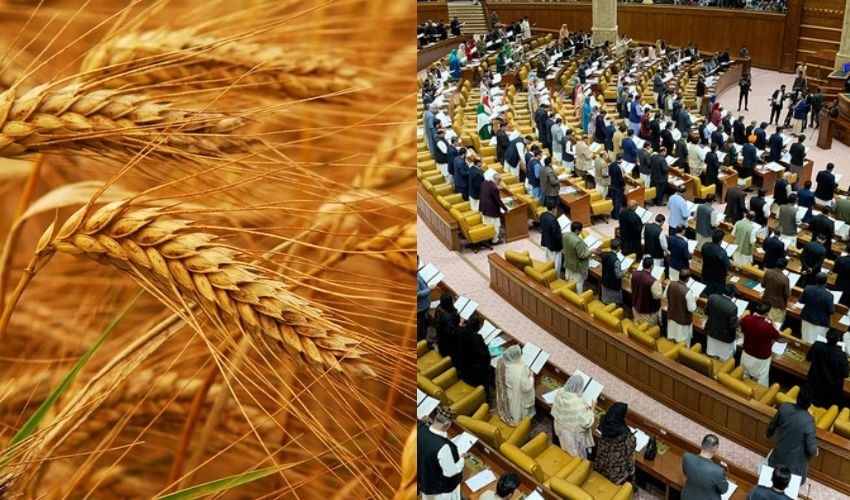The Pakistan Tehreek-e-Insaf (PTI) has intensified its pressure on the government over the wheat scandal, demanding a judicial commission to investigate the alleged Rs300 billion loss to the national treasury. The party claims that the government’s handling of wheat procurement has caused significant financial hardship for farmers and benefited middlemen.PTI senior leader Sheikh Waqas Akram, along with opposition leader in the Punjab Assembly Malik Ahmed Khan Bhachar, criticized the government’s decision to import over 600,000 tonnes of wheat despite already having a stockpile of over 113,000 tonnes. They argued that this move has led to a crisis that primarily benefits middlemen and has caused economic hardships for farmers.
Bhachar announced that farmers plan to stage massive protests starting May 12, with PTI’s full support. He emphasized that the government must take immediate action to stabilize the wheat market and pay farmers fair prices for their crops instead of engaging in a blame game to deflect responsibility.
The PTI leaders also praised the Taliban-run government in Afghanistan for prioritizing the agricultural sector, highlighting the construction of the Qosh Tepa Canal to boost farming. They criticized the current Pakistani administration for its alleged lack of commitment to farmers, urging a thorough and transparent investigation into the wheat scandal.
The government has formed an inquiry committee to address farmers’ grievances over grain purchases. However, these measures have not alleviated farmers’ concerns. The Pakistan Kissan Ittehad (PKI) announced the commencement of a protest movement against the Punjab government’s wheat procurement strategy and the alleged multi-million-dollar wheat import scandal from Multan on May 10.
The PTI leaders emphasized that the government’s failure to secure adequate prices for wheat is driving many farmers into financial distress, jeopardizing food security in the long run. They urged a thorough and transparent investigation, warning that farmers might take to the streets if their grievances remain unaddressed.


